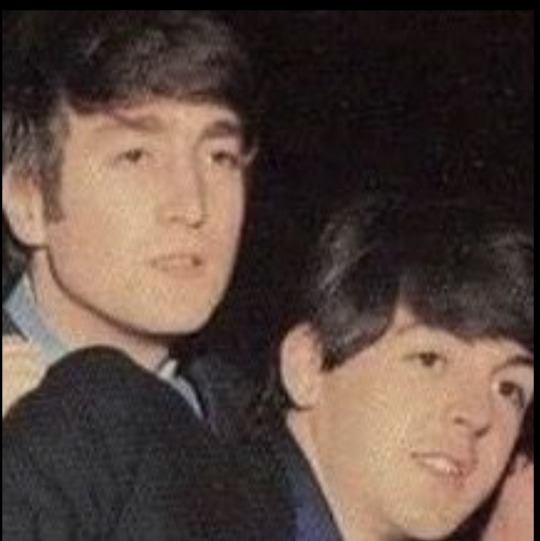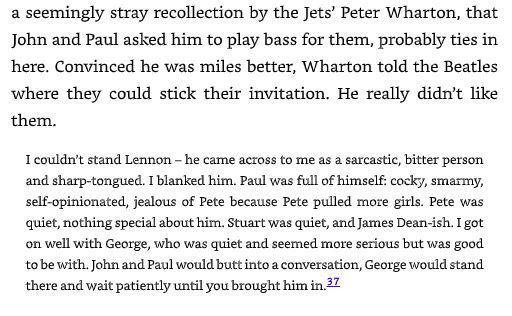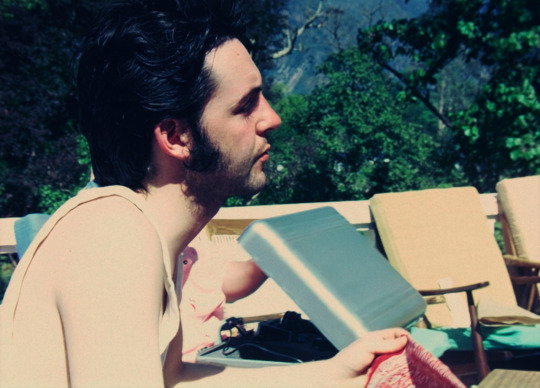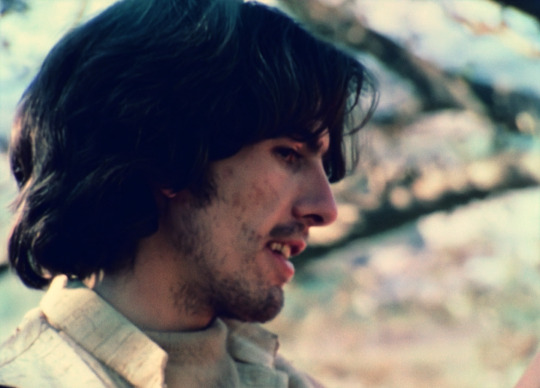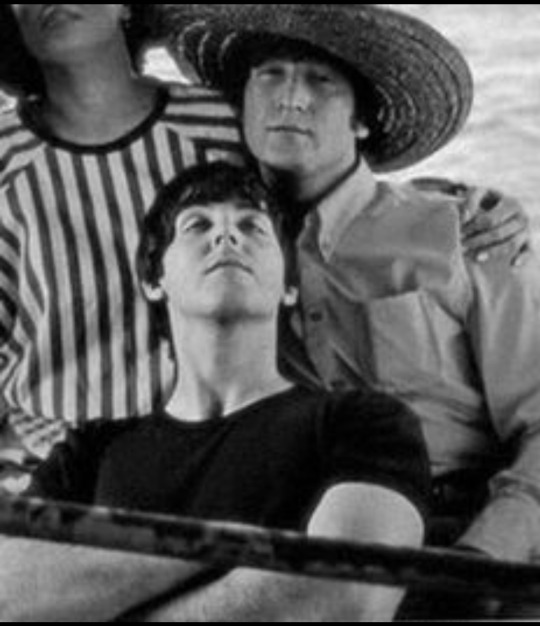Text
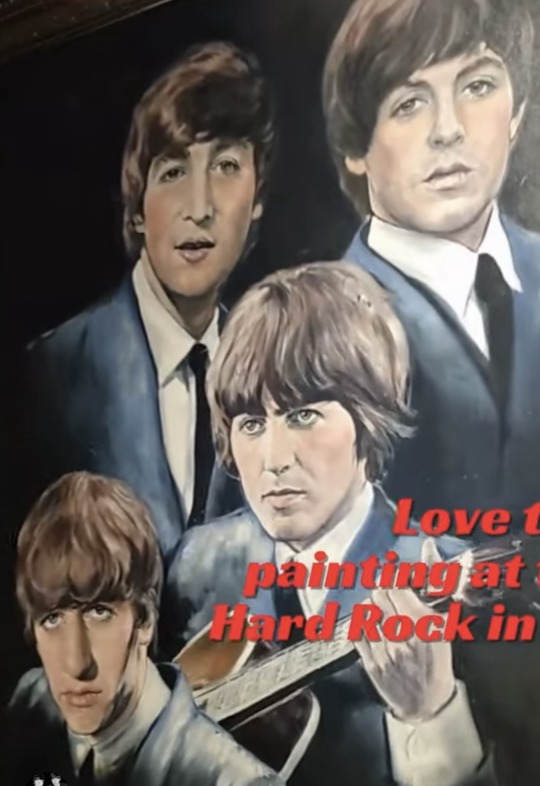
❤️
0 notes
Text
A Monkberry Moon Delight lyrical analysis because it is the greatest song of the 20th century
Monkberry Moon Delight is a song from Paul McCartney's 1971 album Ram. The song is generally considered to be surrealist 'nonsense' lyrics a la Lennon's late Beatles work like 'I am the Walrus' and 'Glass Onion'. But if we know anything about Paul (and Lennon-McCartney in general), he tends to put deeper emotions into his songs, often with out meaning to and without his direct knowledge:
"I don't write anything consciously, Sometime when I'm pissed off with John over Apple business a line might creep in." - Interview with Disc And Music Echo (Nov. 20, 1971)
"Songwriting is like psychiatry; you sit down and dredge up something that's inside, bring it out front." - Interview with Robert Palmer for the New York Times (April 25, 1982)
" But in a song, that's where you can [share your innermost thoughts]. That's the place to put them. You can start to reveal truths and feelings." - Interview with John Wilson fork BBC 4's (May 24, 2016)
And my favorite because it's y'know...in a song: "And when I'm gone, I leave my message in my song" - Beware My Love (Wings at the Speed of Sound, 1976)
All that being said, in my opinion, Monkberry Moon Delight is a projection of Paul's feelings of anxiety about his post-Beatles public/critical reception and his reaction to John Lennon's antagonism post-divorce. Specifically, he details his writing of Too Many People as a response to John's antagonism and the making of Ram as an attempt to recapture public attention/praise.
For context: Monkberry Moon Delight was first written/demoed at some point from May-August 1970 on his farm in Scotland. Paul's late 1969-1970 Scotland era is complicated. He often describes it as being one of the most difficult periods of his life because of the break-up of the Bealtes, the Apple financial troubles, his frayed relationship with John, and starting a whole new life which all compounded into a deep depression and alcohol abuse.
Let's start with the title and chorus. In Paul's own words, Monkberry Moon Delight comes from his kids mispronunciation of the word 'milk' and establishes MMD as a fantastical drink like 'Love Potion No. 9'. I think Paul obviously hides behind the surrealism of the lyric but its association with family and domesticity makes an interesting contrast. Though he is happy to be in his escapist domestic fantasy in Scotland, he juxtaposes this with the underlying pressure to be acclaimed (especially after being considered the greatest artist in the world for ten years). Though the song has a peppy, jaunty beat there is an air of anxiety developed through the songs key of C minor and the staccato of the piano and bass parts. His vocals also have a similar strained desperation like 'Oh! Darling'.
The lyrics:
So I sat in the attic, a piano up my nose
And the wind played a dreadful cantata
Paul starts with himself, writing. 'The attic' may be a reference to John Lennon's recording studio that he had built in his attic in Weybridge where he and Paul would often go to write.
"We nearly always went up to his little music room that he'd built at the top of the house, Daddy's Room, where we would get away from it all. I like to get away from people to songwrite, I don't like to do it in front of people. It's like sex for me" - Many Years from Now. Whether or not this is a direct reference to 'Daddy's Room', Paul is known to prefer small, confined spaces for songwriting.
'Piano up my nose' to me shows a rapt attention, leaning so close to his piano its almost up his nose. He is intently and passionately composing his 'dreadful cantata', this cantata I believe refers to "To Many People". Based on this record of the order of demos on the Ram cassette, it seems that Too Many People may have been written (or at least recorded) before Monkberry, which furthers my belief that Paul is making a meta narration of the writing of his song which he recognizes was very pointed or dreadful.
Sore was I from a crack of an enemy's hose
And the horrible sound of tomato
Here he describes what spurred him to writing this song, and this album as a whole. The 'crack from an enemy's hose' could refer to Allen Klein's treatment of Paul during the final months of the Beatles and his attempted mishandling of the release of McCartney (1970). (Note: The crack could also be from Phil Spector, the press, Ringo, George, Yoko or John; Paul is kind of getting shit from all sides right now). The 'sound of tomato' implies the idea of throwing tomatoes at an artist to express dislike or dissatisfaction, referencing the poor critical reception of McCartney (1970).
Ketchup, soup and puree
Don't get left behind
Ketchup, soup, and puree; liquidy tomatoes because splat, splat, splat go the critics. And ketchup because catch up pun.
Don't get left behind is the central theme of this song. He is worried that the public is going to forget about him while he's depressed, away in Scotland, and making critical flops. This is him desperately clinging onto the hearts of the public. Because we all know how much Paul needs to be liked.
When a rattle of rats had awoken
The sinews, the nerves, and the veins
The 'rattle of rats' could be any of the number of people who were getting on his nerves, sinews, and veins (pissing him tf off) in 1970. This could again be referencing the great "Let's all gang up on Paul McCartney" game of 1970 but because of the subsequent lyrics, I think this may be more specifically about John (and Yoko). Either way, it was these rats who annoyed him into getting to work.
My piano was boldly outspoken
And attempts to repeat his refrain
'Boldly outspoken' again connects this song to TMP. The line is similar to the TMP lyric 'This is crazy and baby, it's not like me' in the sense that both show how audacious he sees this songs as. In 'attempting to repeat his refrain' I think Paul is using the 'well he started it' justification for TMP because he's sees it as a repeat, of him rising to John's level of insults.
So I stood with a knot in my stomach and I gazed at that terrible sight
Of two youngsters concealed in a barrel, sucking Monkberry Moon Delight
Ah yes my favorite moment in all of music ever. This is the verse that really convinced me that this song may be referencing JohnandYoko. The 'youngsters in a barrel' alludes to John and Yoko's bag piece, where they would get into a black bag for...peace? As seen in Get Back, this particularly irked/disturbed Paul. "Go get in your bag. The Merseybeat award for couple of the year, goes to John and Yoko" (Get Back Episode 2). He also refers to them as 'the young lovers' in Get Back during the infamous January 13th 'and then there were two' conversation. Even though it makes him nervous and sick, part of Paul releasing TMP and Ram is to face up to the JohnandYoko powerhouse which was a non-insignificant portion of his early 1970 criticism.
Well I know my banana is older than the rest
and my hair is a tangled baretta
Here I think he is reasoning to the listener, the public, over why he thinks they've abandoned him. Paul recognizes that he has been in this music game a long time (so people may have grown bored of him) and has been depressed (and thus out of the game), his tangled 'baretta' of hair like the wily depression beard he grew out while in Scotland.
Also banana = dick, just so everyone is clear (can anyone find that banana poem from his poetry book? Also this just perpetuates my tinhat theory that all the banana milkshakes Paul got in Paris were just **** **** but I digress). Also something about Paul likening songwriting with sex so him not being 'musically desirable' is because...his music dick is old? Ok Paul.
I leave my pajamas to Billy Budapest
And I don't get the gist of your letter
This is the one lyric I am pretty unsure about. Not that every line has to fit perfectly into my interpretation but I genuinely could not make heads or tails of it. My initial interpretation was that this was referring to Billy Shears, and how during this period the Paul is dead theory regained popularity. This reference adds to the feeling of dissolution he builds in this verse.
But mike on the Beatles Bible seems to remember Billy Budapest as being a children's pajama designer though I have found not evidence of this. However going with this shot in the dark, leaving his pajamas to Billy Budapest could draw back to the theme of his current domesticity and occupation with his children.
The letter in question I believe refers to the infamous letter John and George wrote to Paul changing his McCartney release date that they had Ringo deliver which really set Paul off and kind of began the messiness of the divorce.
Catch Up, cats and kittens
Don't get left behind
Finally we get the pay off to the ketchup-catch up pun and see the resurgence of the theme; Paul feeling like he's falling behind his contemporaries and desperation to catch up.
In typical McCartney fashion, Monkberry Moon Delight is a seemingly shallow and superfluous song but actually reveals a lot about his inner turmoil at the time. Him dealing with the rejection by the critics and John by turning to his piano and creating the absolute banger that is Monkberry. This is why MMD is one of Paul's best, because of how quintessentially Paul it is. Veiling tough emotions behind ambiguous and surreal lyrics masked by a fun and light melody. Oh, the juxtaposition! Oh, the Lennon-McCartney of it all.
Anyways this is a barely organized rambling of thoughts but Monkberry Moon Delight deserves a mega analysis because it is genuinely one of the best songs Paul McCartney has ever made.
98 notes
·
View notes
Text
“‘After Stu, I liked John and George. Then I liked Pete Best. I liked him very much, but he was so very very shy. He could be funny, but I didn’t have much contact with him. Even in those days one tended to forget him. He was on his own really. ‘Paul, I found hard to get close to. He was always friendly. He was by far the most popular with the fans. He always did the talking and announcing and the autograph bit. Most fans looked upon him as the leader. John of course was the leader. He was by far and away the strongest. I don’t mean physically, but as a personality. 'Stu was the most intelligent one. I think they all agreed on that. John did. 'George, we never thought about George’s intelligence one way and another when we were talking about them. We knew he wasn’t stupid, but he was just such a young lovely boy. He was so sweet and open about everything, like admiring the ham sarnies. He had a great following. Jurgen used to have a notice which said “I Love George”. He was one of the first to do that sort of thing.”
— Astrid Kirchherr, The Beatles Authorized Biography
126 notes
·
View notes
Text
Ringo is a sweet guy. As you know he's given up booze and cigarettes. He's too clean for words. He and his wife Barbara are such sweet people. And as a drummer he is unique. He's not a great technical drummer if you measure him against someone like Steve Gadd or Jeff Porcaro, he wouldn't be able to play like that. But he has a unique sound. When you hear Ringo, you know it's Ringo, there's no one else. He contributed an enormous amount to The Beatles' sound with his distinctive sounding drums. Enormously supportive, he was always there.
Apart from his drumming he would be the catalyst. His opinions counted. If John was doing something a bit dubious and Ringo would say, "That's crap, John," John would take it out. He wouldn't get angry, he would accept it.
— George Martin, interviewed November 1998.
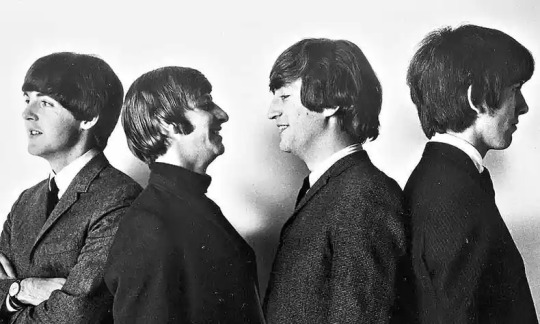
276 notes
·
View notes
Text
"...the song called "Boys" which is kinda weird, you know, "I'm talking about boys." We never thought about boys, girls, it doesn't matter, it's just a good song, you know! We never realized that guy's singing about boys had implications, you know! What the hell, it doesn't matter, it's just a good song"
HE'S SO FUNNY.
360 notes
·
View notes
Text

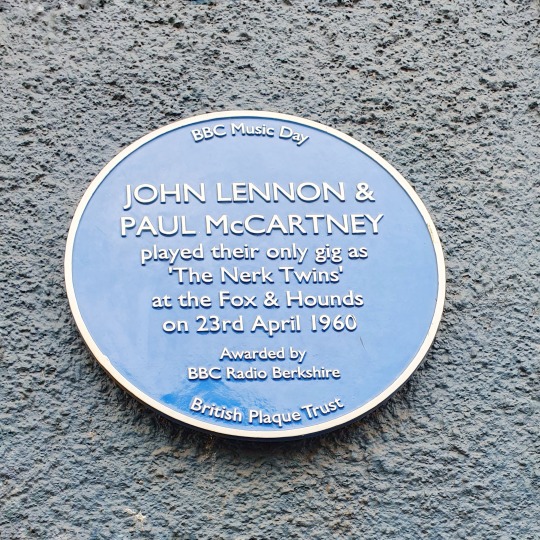
took a little trip to the fox and hounds in caversham to celebrate the anniversary of the nerk twins playing 64 years ago today!
238 notes
·
View notes
Text
Linda McCartney talks about her hairy legs:
“You mean im natural???”
271 notes
·
View notes
Text

this quote choice for the back of volume 1 of Ray Coleman’s Lennon biog
42 notes
·
View notes
Text
"If you go to a party and the husband and wife have been having a row - there's a tension, an atmosphere. And you wonder whether you are making things worse by being there. I think that was kind of the situation we found with Ringo. He was probably feeling a little bit odd because of the mental strangeness with John and Yoko and Paul." -George Martin
(Source: The Beatles, Anthology, 1995)

118 notes
·
View notes
Text










“𝖯𝖾𝗋𝖼𝗁𝖾𝖽 𝗈𝗇 𝗍𝗁𝖾 𝗍𝗈𝗉 𝗈𝖿 𝖺 𝗁𝗂𝗅𝗅 𝗐𝗂𝗍𝗁 𝖻𝖾𝖺𝗎𝗍𝗂𝖿𝗎𝗅 𝗉𝖺𝗇𝗈𝗋𝖺𝗆𝗂𝖼 𝗏𝗂𝖾𝗐𝗌 𝖿𝗋𝗈𝗆 𝗒𝗈𝗎𝗋 𝗈𝗐𝗇 𝗋𝗈𝗌𝗒 𝗍𝖾𝗋𝗋𝖺𝖼𝖾, 𝗍𝗁𝗂𝗌 𝟪𝟧 𝗌𝗊𝗆 𝗋𝗎𝗌𝗍𝗂𝖼 𝖻𝖾𝖺𝗎𝗍𝗒 𝗂𝗌 𝗅𝗈𝖼𝖺𝗍𝖾𝖽 𝗃𝗎𝗌𝗍 𝟣𝟢𝗄𝗆 𝖿𝗋𝗈𝗆 𝖲𝗉𝗈𝗅𝖾𝗍𝗈. 𝖳𝗁𝖾 𝗍𝗁𝗋𝖾𝖾 𝖻𝖾𝖽𝗋𝗈𝗈𝗆, 𝗍𝗁𝗋𝖾𝖾 𝗌𝗍𝗈𝗋𝖾𝗒 𝖼𝗈𝗎𝗇𝗍𝗋𝗒 𝗁𝗈𝗎𝗌𝖾 𝗂𝗌 𝗌𝗎𝗋𝗋𝗈𝗎𝗇𝖽𝖾𝖽 𝖻𝗒 𝖺 𝗀𝗋𝖾𝖾𝗇 𝗈𝖺𝗌𝗂𝗌 𝖺𝗇𝖽 𝗎𝗇𝗆𝖺𝗍𝖼𝗁𝖾𝖽 𝗍𝗋𝖺𝗇𝗊𝗎𝗂𝗅𝗂𝗍𝗒!”
𝗏𝗂𝖺 𝖼𝗁𝖾𝖺𝗉𝗉𝗋𝗈𝗉𝖾𝗋𝗍𝗒𝖾𝗎
433 notes
·
View notes
Text
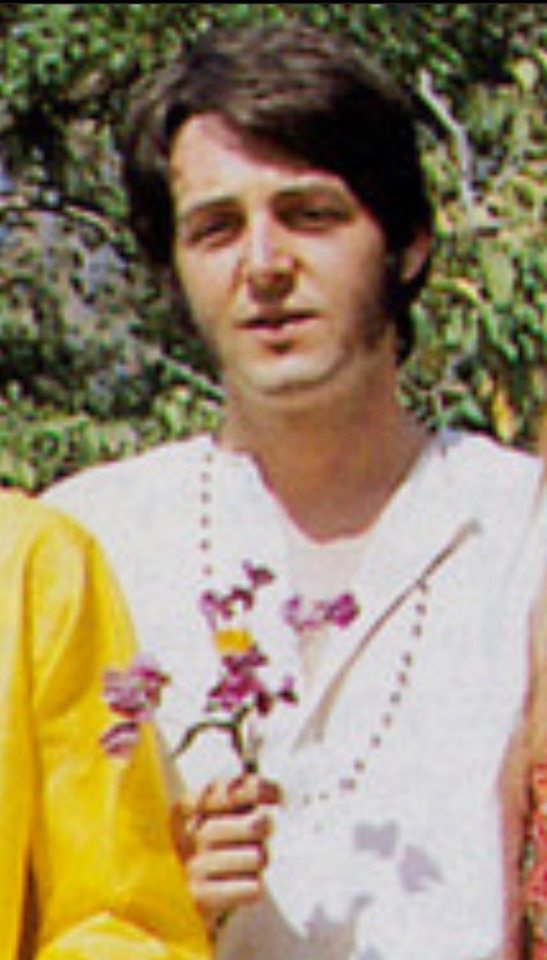
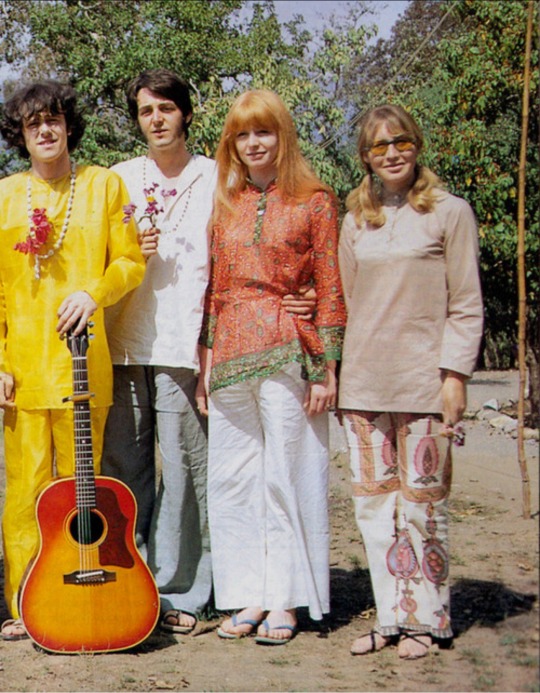
5 notes
·
View notes

